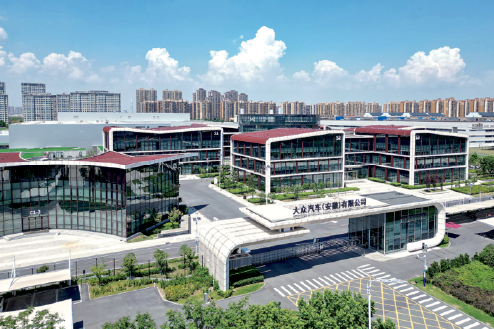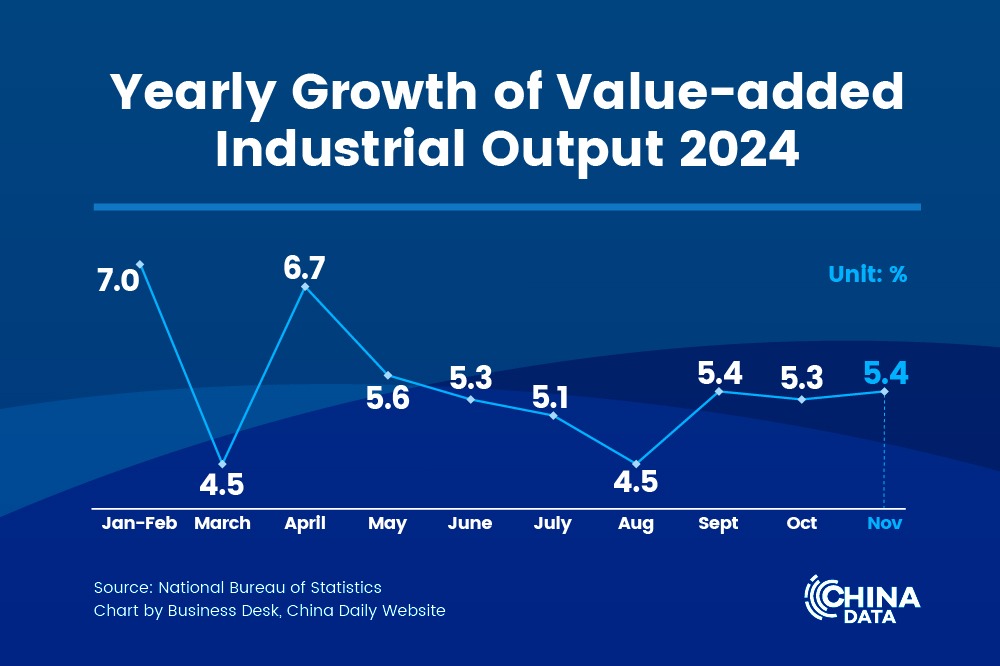Policy shift to spur growth, official says
Nation well positioned to provide robust support for next year's economic targets


China's shift to a more proactive fiscal policy and a moderately loose monetary policy next year signals the nation's resolve to tackle economic challenges head-on and take an active role in spurring growth, said a senior official.
In 2025, China will exercise a more proactive fiscal policy for the first time, and shift its monetary stance to a moderately loose approach, which marks an end to the 14-year run of a prudent monetary policy, said an official from the Office of the Central Committee for Financial and Economic Affairs.
The official's comments, according to a report from Xinhua News Agency, came after the nation's policymakers set the policy agenda for the world's second-largest economy at the annual Central Economic Work Conference in Beijing last week.
The directional shift indicated the central authorities' concern that the domestic economy continues to face substantial headwinds, both from evolving external conditions as well as lingering domestic challenges, the official said.
On Monday, the State Council, China's Cabinet, urged relevant departments to translate the decisions adopted at the Central Economic Work Conference into detailed plans and deliver them on the ground as soon as possible.
In a move to improve the management of local government special-purpose bonds, it was decided at Monday's State Council executive meeting chaired by Premier Li Qiang that a negative list approach will be introduced to identify the areas where these bonds can be channeled.
The new policy will also allow localities to use special-purpose bonds for land reserves and to support the acquisition of existing commercial housing units for use as government-subsidized housing, the meeting said.
China is still well positioned to ramp up its countercyclical adjustments to provide robust support to achieve the nation's full-year economic targets in 2025, the official from the Office of the Central Committee for Financial and Economic Affairs said, noting that a higher deficit-to-GDP ratio and cuts to the reserve requirement ratio and interest rates are in the pipeline.
Expanding domestic demand will be a strategic priority next year, with a particular emphasis on boosting consumption, the official said, adding that dedicated efforts will be made to enhance consumption capacity and bolster consumers' willingness to spend.
To this end, the central authorities will utilize various policy levers, including increased direct fiscal investments in end-consumer segments, as well as measures to improve the social security system, in order to drive steady growth in people's incomes, the official said.
Moreover, after the effective implementation of consumer goods trade-in programs this year, China will expand the scope and funding for these initiatives next year, to include more consumer product categories and optimize the subsidy process, the official said.
As another crucial component of domestic demand, China still maintains significant investment potential, the official said, stressing that the nation will take steps to anchor the expectations of private enterprises and deepen institutional opening-up in key sectors for foreign businesses, with the aim of effectively boosting investment momentum.
At a time when the headwinds of economic globalization and geopolitical risks are rising, it is all the more crucial for China to introduce more policies for voluntary and unilateral opening-up and bolster global trade and investment partnerships in the process, the official said.
China will subscribe to high-standard international economic and trade rules, and expand the globally oriented network of high-standard free-trade areas, in a bid to steadily enhance institutional opening-up, the official said.
Meanwhile, the country will expand pilot programs for foreign investors in sectors such as telecommunications and healthcare, and take well-paced steps to further open the internet, education, culture and other sectors, the official added.
In a concerted push to shore up the resilience of its foreign trade, the official said that China will deploy a comprehensive set of tools to support enterprises in exploring diversified international markets, promote the development of cross-border e-commerce, and deepen cooperation under the Belt and Road Initiative.
As for the real estate sector, with clear indications of halting the decline and moving toward stabilization after a range of pro-housing policies were introduced in September, it is imperative to exert sustained efforts to ensure a stable recovery next year, the official said.




































